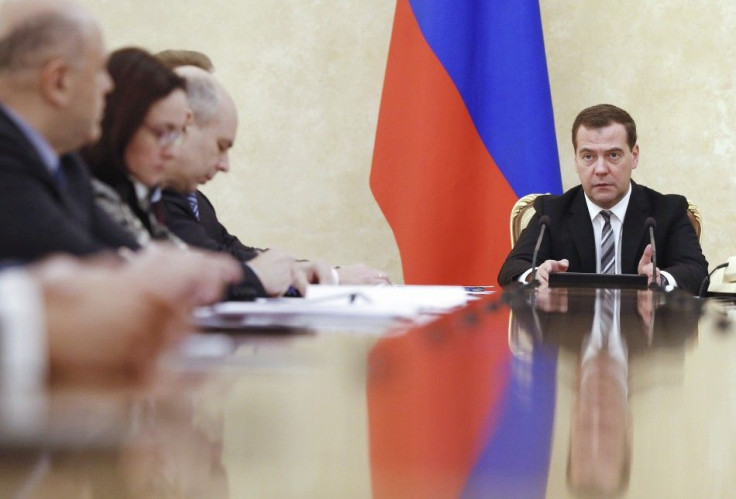Russian Prime Minister Meets Exporting Companies To Find Solutions To Falling Ruble

The Prime Minister of Russia, Dmitry Medvedev, addressed the representatives of exporting companies and ministers in charge of economic policy in a meeting on Dec. 17. The agenda of the meeting was to find solutions to the fall of ruble in the past few months.
In his opening remarks, the Prime Minister said that the ruble is currently undervalued and that the current exchange rate is not based on the fundamental indicators and does not reflect the state of the Russian economy. He blamed the falling oil prices and the economic sanctions imposed by the U.S and the European Union as the two contributing factors for the depreciating currency.
One of the consequences of the sanctions is the international financial markets are no longer available to Russia to help relieve the situation. The Prime Minister, however, stated that there are enough currency resources within the country and that the government is coordinating with the central bank to help find solutions to the problem at hand. He said that the government would be willing to look at increasing liquidity in the market, if necessary.
The Prime Minister recognized the difficulties that some of the companies may be facing as a consequence of falling ruble. Two situations that will affect the companies are the servicing of foreign debts and the purchase of foreign equipment.
The Prime Minister promised to take all necessary decisions to reverse the falling ruble. He said that the government and the central bank have together worked out a package and will be coordinating their efforts.
The Central Bank of Russia on Dec. 16 raised the key interest rates to 17 percent. The move was primarily aimed at stopping the further depreciation of the ruble and combating the inflationary risks in the economy. The exchange rate of I US$ to the Russian ruble on Dec. 16 was at just over 76. The exchange rate is currently at around 60.
The strengthening of the ruble in the past few days also comes on the back of an increase in the oil prices. The commodity posted moderate gains in the past two days. Oil was trading at around $56 on Dec. 16 and is currently close to $57.






